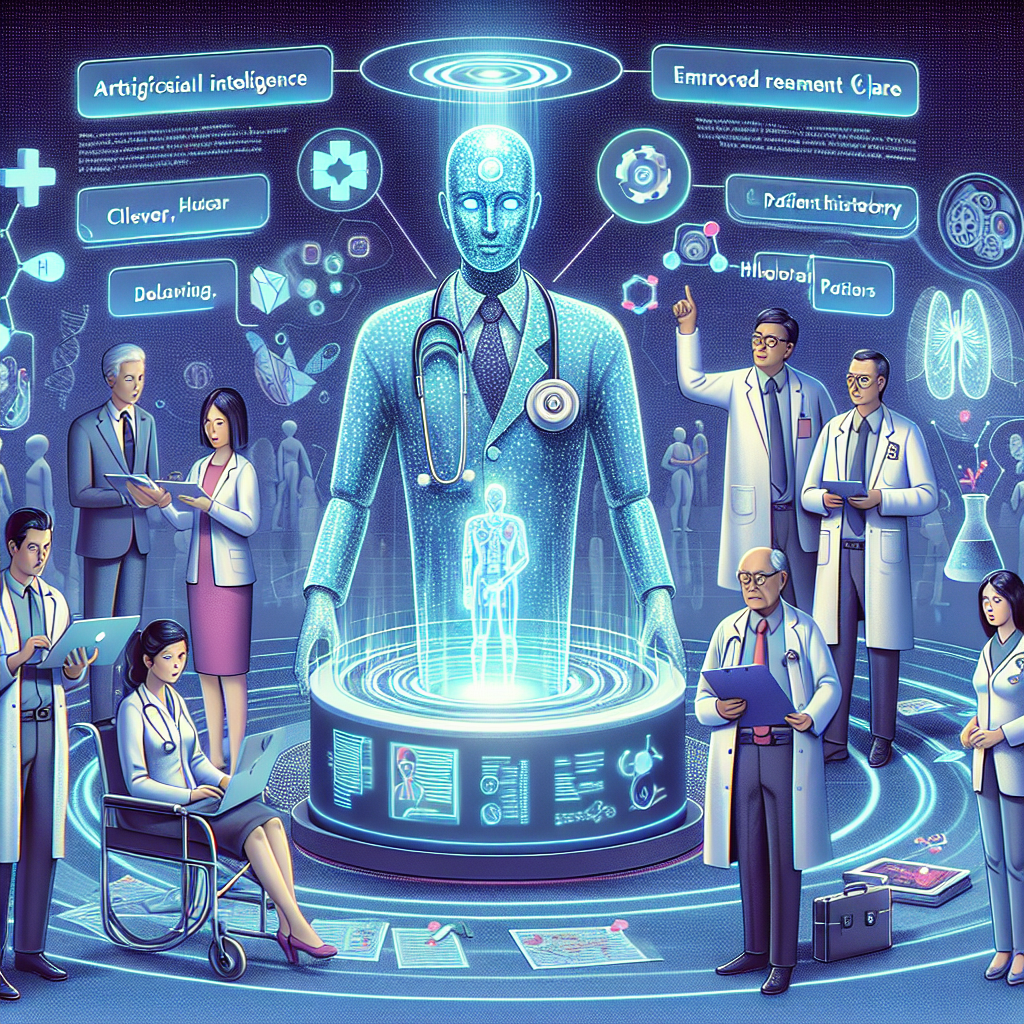“Say ‘Ahh’ to AI: Physicians Swap Stethoscopes for ChatGPT and More in Diagnosing Ailments”

“AI in the doctor’s office: GPs turn to ChatGPT and other tools for diagnoses”
“Medical professionals worldwide are beginning to see the benefits of using artificial intelligence in the doctor’s office for helping diagnose patients quickly and efficiently, with tools like OpenAI’s language model, GPT-3, becoming commonly used.”
Resardless of whether that pair of old-school glasses perched on the bridge of your nose is sliding down in disbelief, or the mention of ‘Artificial Intelligence’ just prompted a marathon of sci-fi doomsday scenarios in your head, yes, AI is elbowing its way into the hallowed cubicles of your local doctor’s office. More amusingly, it’s doing a swell job at it!
Wasn’t it only yesterday that the water cooler talk was laughing off AI software even uttering a comprehensible sentence? Yet, here they are today, challenging the conventional diagnostics and treatment realm with tools like OpenAI’s GPT-3.
Now, before the skeptics leap into touting the human touch and the credibility that comes with years of medical experience, calm those palpitations, caffeine might work faster! More ironical than the AI itself is that, it’s not trying to ‘replace’, but ‘aid’ human doctors.
Who would’ve thought that AI-powered diagnostic tools could sift through volumes of electronic health records, unravel complex medical conditions, and present patient symptoms and history in succinct, understandable bites? It’s as if your doctor now comes equipped with an in-built Google, but more accurate than your self-diagnosed obscure tropical disease at 2 AM.
What’s next? AI siphoning a double dose of analytical intelligence into improving treatment pathways? Oh wait, it’s already happening. The ability of these machines to pitch in, sifting the voluminous medical literature, unprecedented accuracy and their knack of preserving the confidentiality of patients, surely adds some extra arrows into the quiver of doctors.
Of course, this doesn’t wave off the challenges of integrating AI into the vulnerabilities of our healthcare system. It’s akin to handing a 3-year-old the TV remote and expecting not to land on a shopping channel. But hey, you’ve got to start somewhere, right?
So the next time you’re visiting your GP for that nagging cough, don’t be shocked if their new partner isn’t a lab-coat-clad human, but an AI system beaming with the knowledge of millions of medical records. While engaging in a dialogue with that machine may feel like a conversation with a sophisticated toaster, rest assured, it’s working its virtual socks off to ensure you experience a healthier future. Pun intended, of course.
